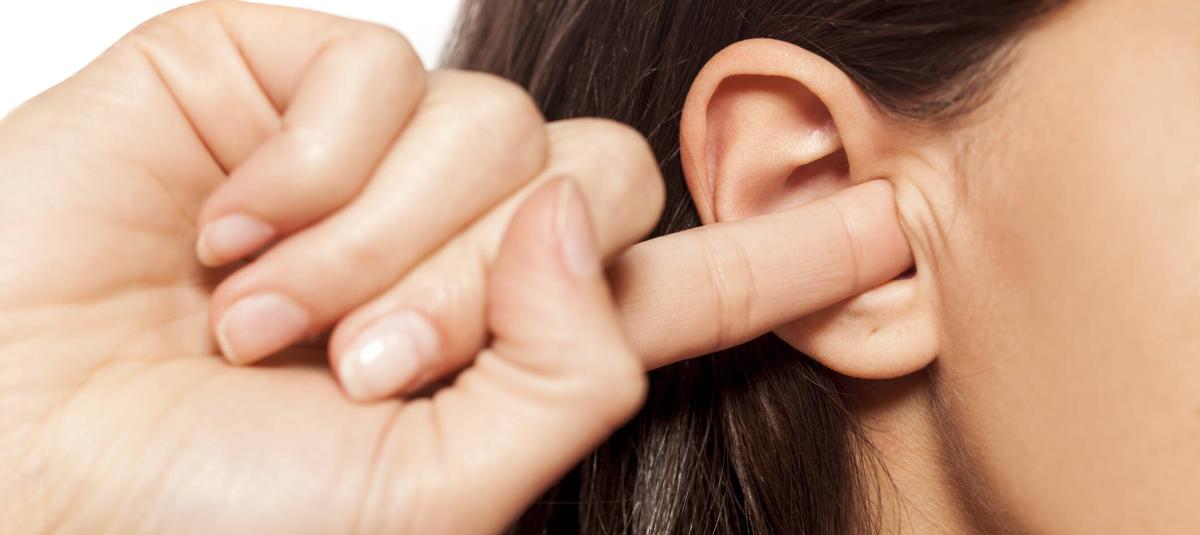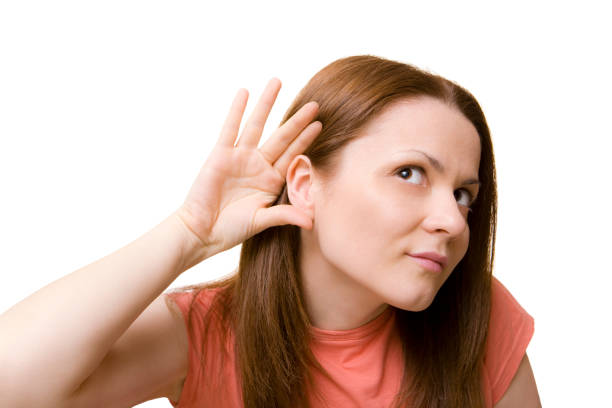Here's what you can do at home if your ear is blocked and when you should see a doctor.

Feeling like one of your ears is blocked can be annoying and even alarming. This sensation of pressure, ringing, or partial hearing loss can occur suddenly, and while it sometimes resolves on its own, other times it requires medical attention.
According to an article in Medical News Today , the sensation of a blocked ear can be caused by a pressure imbalance between the middle ear and the outside environment, and is also associated with conditions such as infections, earwax buildup, sudden changes in altitude, or nasal congestion.
In most cases, the cause is benign and temporary, but specialists warn that it should not be ignored if it persists or is accompanied by other symptoms.

Experts warn against inserting objects into the ear. Photo: iStock
Among the most common causes is earwax, which occurs when wax builds up and blocks the ear canal. This can be due to excessive earwax production or the incorrect use of earwax swabs, which, instead of removing the wax, push it further down.
Ear blockage is common due to poor function of the Eustachian tube, a tube that connects the middle ear to the back of the nose and throat. When this tube becomes inflamed or blocked—due to colds, sinusitis, or allergies—the pressure in the middle ear is not properly regulated, causing a feeling of blockage.
Another reason may be the presence of fluid behind the eardrum, a condition more common in children but also present in adults who have had recent respiratory infections.
Healthline points to less common causes such as rapid changes in altitude (such as traveling by plane or climbing mountains), middle ear infections, and, in more severe cases, neurological or auditory problems such as sudden hearing loss or benign tumors like acoustic neuromas.
How to safely unclog your ears? Before going to the doctor, there are several techniques that can help relieve ear blockage, depending on the cause. One of the best-known is the Valsalva maneuver, which involves closing your mouth, pinching your nose with your fingers, and gently blowing to equalize the pressure. This technique can be useful in cases of altitude or Eustachian tube dysfunction.
In its guide on how to unclog your ears, Bupa Health also recommends inhaling steam, applying warm compresses near the affected ear, or using decongestant nasal sprays if there are signs of congestion.
On the other hand, if earwax builds up, you can use special drops that dissolve the wax, but it is important to avoid inserting objects into the ear canal.
The general recommendation is to be very careful: "Do not use harsh home remedies or insert cotton swabs or sharp objects into the ear," warn experts cited by Healthline. This could cause injury to the ear canal or even perforate the eardrum.
When to go to the doctor? Although ear blockage often resolves within a few days, there are warning signs that indicate the need for medical attention . If the discomfort persists for more than five days, if there is severe pain, fever, foul-smelling discharge, dizziness, significant hearing loss, or if the blockage develops suddenly without apparent cause, it is important to seek medical attention.
Intervention is also necessary if an ear infection is suspected or if the ear has been exposed to loud noises recently. In some cases, professional ear cleaning, audiometry, or even imaging studies will be necessary to rule out more complex causes.
To prevent ear blockages, keep in mind that: do not use cotton swabs aggressively, protect your ears from water in pools or showers (especially if you have a history of infections), treat allergies and nasal congestion promptly, and avoid self-medicating. These are key measures.
Additionally, those who frequently fly or scuba dive may benefit from pressure regulation techniques such as chewing gum during takeoff and landing, or using special ear protectors to equalize ear pressure.

You should consult a doctor if your hearing loss is significant. Photo: iStock
ANGELA MARÍA PÁEZ RODRÍGUEZ - SCHOOL OF MULTIMEDIA JOURNALISM EL TIEMPO.
eltiempo

%3Aformat(jpg)%3Aquality(99)%3Awatermark(f.elconfidencial.com%2Ffile%2Fbae%2Feea%2Ffde%2Fbaeeeafde1b3229287b0c008f7602058.png%2C0%2C275%2C1)%2Ff.elconfidencial.com%2Foriginal%2F880%2Fda5%2F454%2F880da5454956c190b4fe6f7f283e282f.jpg&w=3840&q=100)
%3Aformat(jpg)%3Aquality(99)%3Awatermark(f.elconfidencial.com%2Ffile%2Fbae%2Feea%2Ffde%2Fbaeeeafde1b3229287b0c008f7602058.png%2C0%2C275%2C1)%2Ff.elconfidencial.com%2Foriginal%2F6ec%2Fd22%2F149%2F6ecd221497f9a8652ec074283d0e77c2.jpg&w=3840&q=100)
%3Aformat(jpg)%3Aquality(99)%3Awatermark(f.elconfidencial.com%2Ffile%2Fa73%2Ff85%2Fd17%2Fa73f85d17f0b2300eddff0d114d4ab10.png%2C0%2C275%2C1)%2Ff.elconfidencial.com%2Foriginal%2Fc11%2Fd8b%2F5a8%2Fc11d8b5a80341d5b685fd18a0dc529b3.jpg&w=3840&q=100)
%3Aformat(jpg)%3Aquality(99)%3Awatermark(f.elconfidencial.com%2Ffile%2Fa73%2Ff85%2Fd17%2Fa73f85d17f0b2300eddff0d114d4ab10.png%2C0%2C275%2C1)%2Ff.elconfidencial.com%2Foriginal%2F215%2Fe8d%2Fde2%2F215e8dde23757d751ec45eba9f8673f6.jpg&w=3840&q=100)
